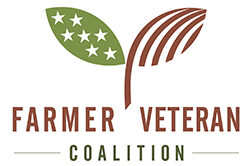FVC State Chapters
FVC State Chapters increase membership and participation in the farmer veteran movement, provide a means of grassroots support for farmer veterans within each chapter’s territory, and encourage and locate eligible veterans for the multitude of programs and services that FVC provides. To go directly to their site, click on a state below.
FVC State Chapters
Statewide chapters provide FVC with the capability to integrate veterans into local agricultural communities.
- Chapters bridge the gap between a nationally-driven movement of farmer veterans and the state and county-level resources that will help them achieve success in agriculture
- We rely heavily on our state chapters to connect with members for their individual needs
- Chapters offer an additional way for us to personalize the farmer veteran experience
Joining a state chapter — or helping to start one — offers significant benefits
- Collaborate with other members on local projects, participate in local agricultural opportunities
- Engage in networking with and building your surrounding community
- Contribute to helping your fellow farmer veterans in the local region
Don’t have a chapter in your state? See below to find out how to start one.
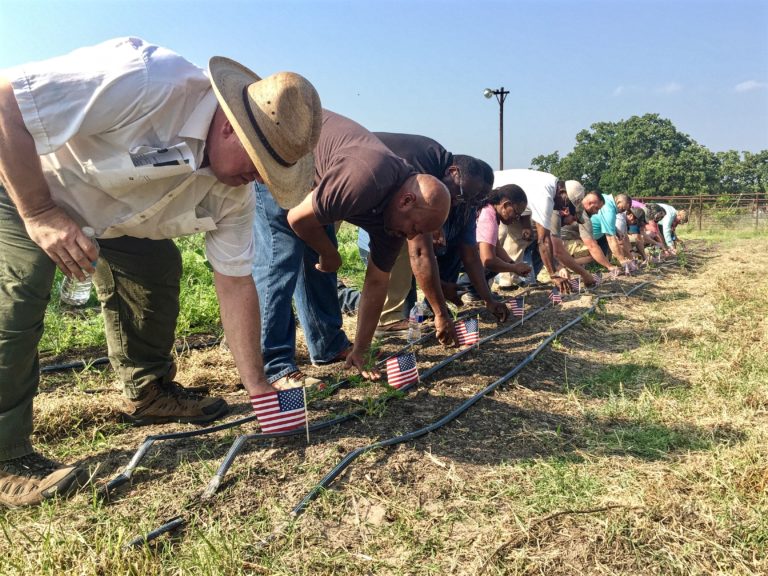
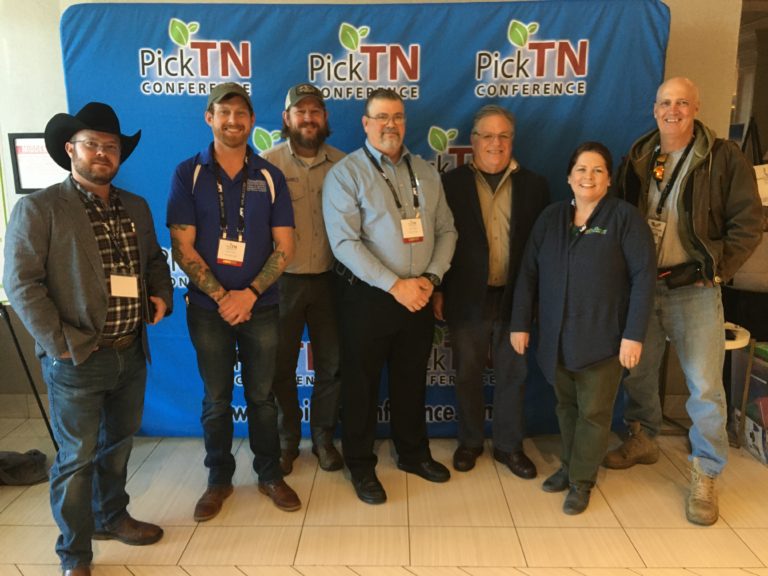
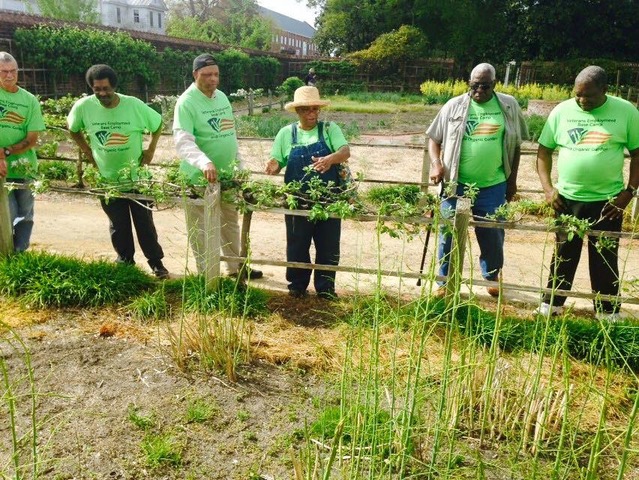
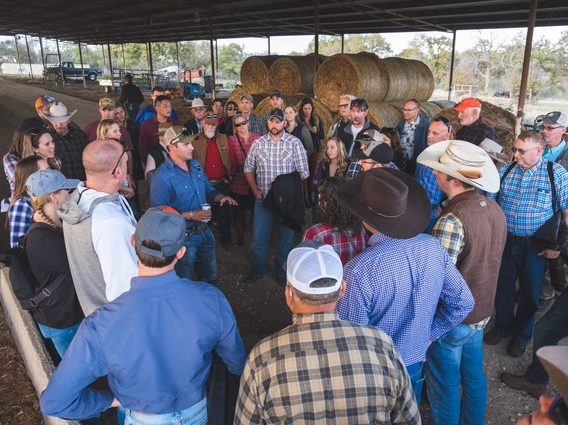
Initial Steps of
Forming a Chapter
- Fill out this form on the FVC website. FVC will respond and connect with all interested parties.
- FVC then generates an email to all state FVC members to gauge their interest in helping to start a state chapter.
- A conference call follows in which chapter formation steps are discussed.
- All those interested in starting a state Chapter Organizing Committee (COC) must submit a rough “résumé” of their contact information; military, agriculture experience, and why they want to be on the COC; and if would desire to be the chair.
- The COC will electronically – and anonymously – identify one or two members to be the Chair or Co-Chairs via this example survey to shepherd the chapter through the formation process.
Interested in forming a chapter in your state?
State Chapter FAQ
- One or more FVC members or people of interest contact Farmer Veteran Coalition national, expressing an interest in starting a chapter in their state. This connection can be done via personal contact or this link on the FVC website.
- An FVC-appointed employee responds and sets up a phone call with all interested parties to discuss the way ahead for chapter formation.
- FVC then generates an email to all state FVC members to gauge their interest in helping to start a state chapter. One person will be designated as the primary point of contact so that email responses would land in his/her inbox, and s/he can compile and respond to them directly. Usually, approximately 10 to 15 people respond. Set up zoom meeting – put in link to email
- A conference call follows in which at least three things should be discussed:
- Why the state wants to start a chapter
- The process to start a chapter
- The responsibilities of a state chapter
- A small number rise above the rest to be leaders and form a Chapter Organizing Committee. Amongst them, one or two people will be designated as chair or co-chair.
- All those interested in starting a state COC must submit a consolidated list of their names with contact information and a rough “résumé” of their military, agriculture experience, and why they want to be on the COC. They should highlight their appropriate skills and if they would desire to be a chair. FVC will approve all applicants and then send written authorization to the entire group. An FVC representative will compile the résumés on a google doc which will eventually be embedded in the survey form.
- The COC will electronically identify one or two members to be the Chair or Co-Chairs via this link to shepherd the chapter through the formation process. Other than this primary point of contact, no other positions need to be named at this point.
- Here is the suggested format for a short, short bio:
- Military experience (three sentences)
- Ag experience (also three sentences)
- What you hope to achieve by being on the COC or Board – be sure to state if you want to be considered for Chair.
- Feel free to elaborate but do not exceed one page.
- A stakeholder may contribute to a chapter either as a board member or as a separate entity who informally supports the chapter within their own capacity.
- Expectations for a stakeholder Board member range from adding subject matter advice and opinions; amplifying the chapter’s media and events through their networks; offering workshops and training activities; to providing appropriate in-kind and/or cash donations. Fundraising is always appreciated, but no monetary contribution is required for Board membership.
- COC should strategize with whom they will conduct outreach. It should be comprehensive and all-encompassing; every door needs to be knocked on, every organization needs to be considered.
- Create a working document on which members can add their ideas.
- Create a spreadsheet which tracks all organizations and farmers to whom the COC should contact.
- Ensure all aspects of the state’s agriculture, veteran affairs, education, farmer veterans, etc are on the list.
- This is working document; keep adding to it!
- Assign COC members to each contact and schedule a timeline to accomplish outreach.
- The following organizations are recommended to be invited to participate:
- Local representatives from the U.S. Department of Agriculture (USDA).
- State department of agriculture.
- Representatives from a land-grant university or other universities within a state.
- Farm Bureau
- Farm Credit
- Farmers Union (where applicable)
- AgrAbility (or another organization that helps disabled farmers)
- viii.Local large-scale producers
- Other leading farm organizations in the state
- Local and state non-profits
- Other individuals or organizations that FVC leadership suggests
- Once you have a robust list with a timeline, set the date for the Stakeholder meeting, thus setting a realistic time frame for holding a successful Stakeholder meeting.
- The required materials are the following:
- A consolidated document of the biographies of the prospective board members
- The 2-year operational plan
- The up-to-date Chapter Formation Checklist
- FVC staff’s assessment of the chapter’s package
- A Review Team, a subcommittee of the National Board of Directors, will assess the package and provide their recommendation for approval.
- If the Review Team recommends chapter formation, the National Board will vote on the Chapter at the following board meeting.
- It depends on the amount of time volunteers have to commit to the process and what time of year they start (spring and summer are slower times for formation).
- Usually, we see chapters forming in ~ six months.
- FVC will pay for the reservation of the chapter name (https://icis.corp.delaware.gov/Ecorp/NameReserv/NameReservation.aspx.).
- FVC will pay for all the filing of the initial Delaware incorporation paperwork.
- When possible, FVC will fund meetings.
Still have more questions?
